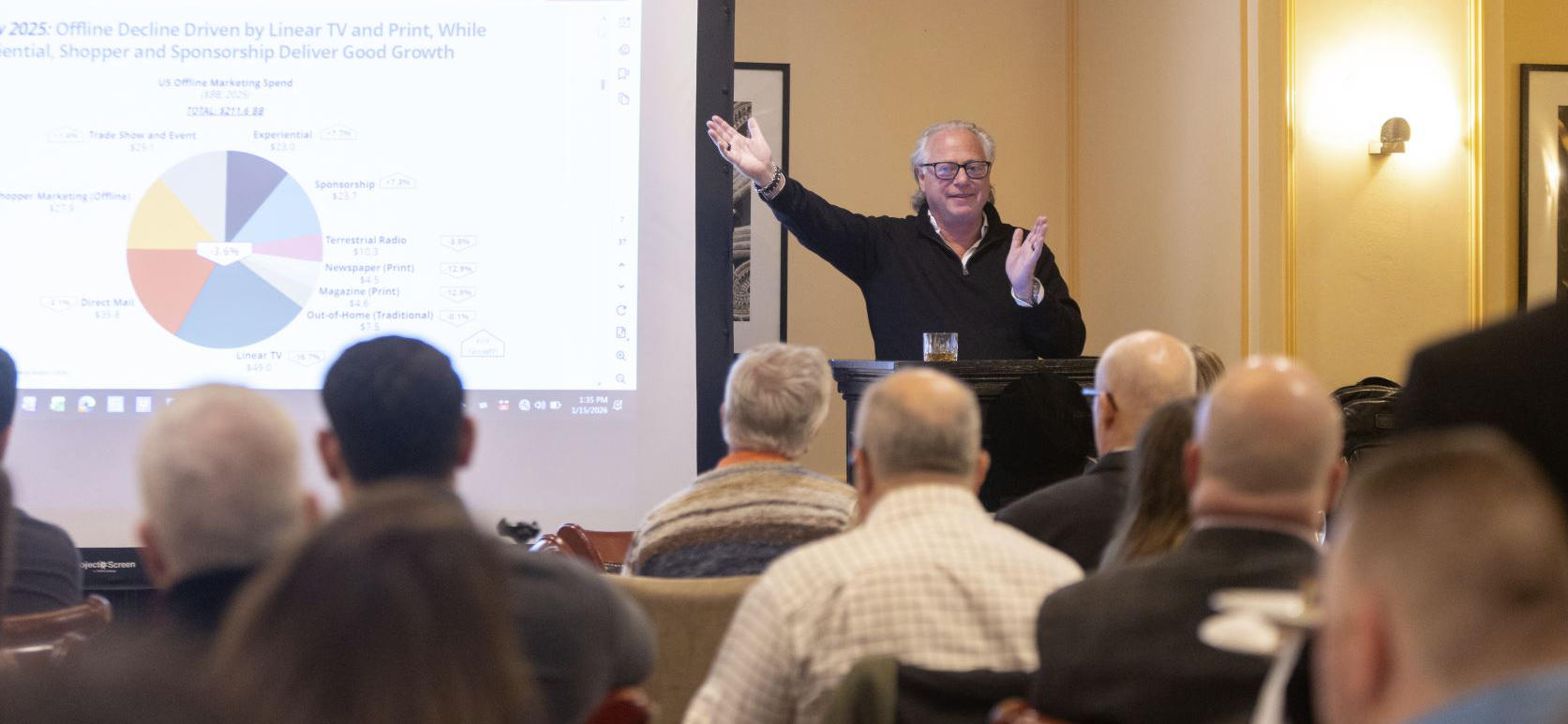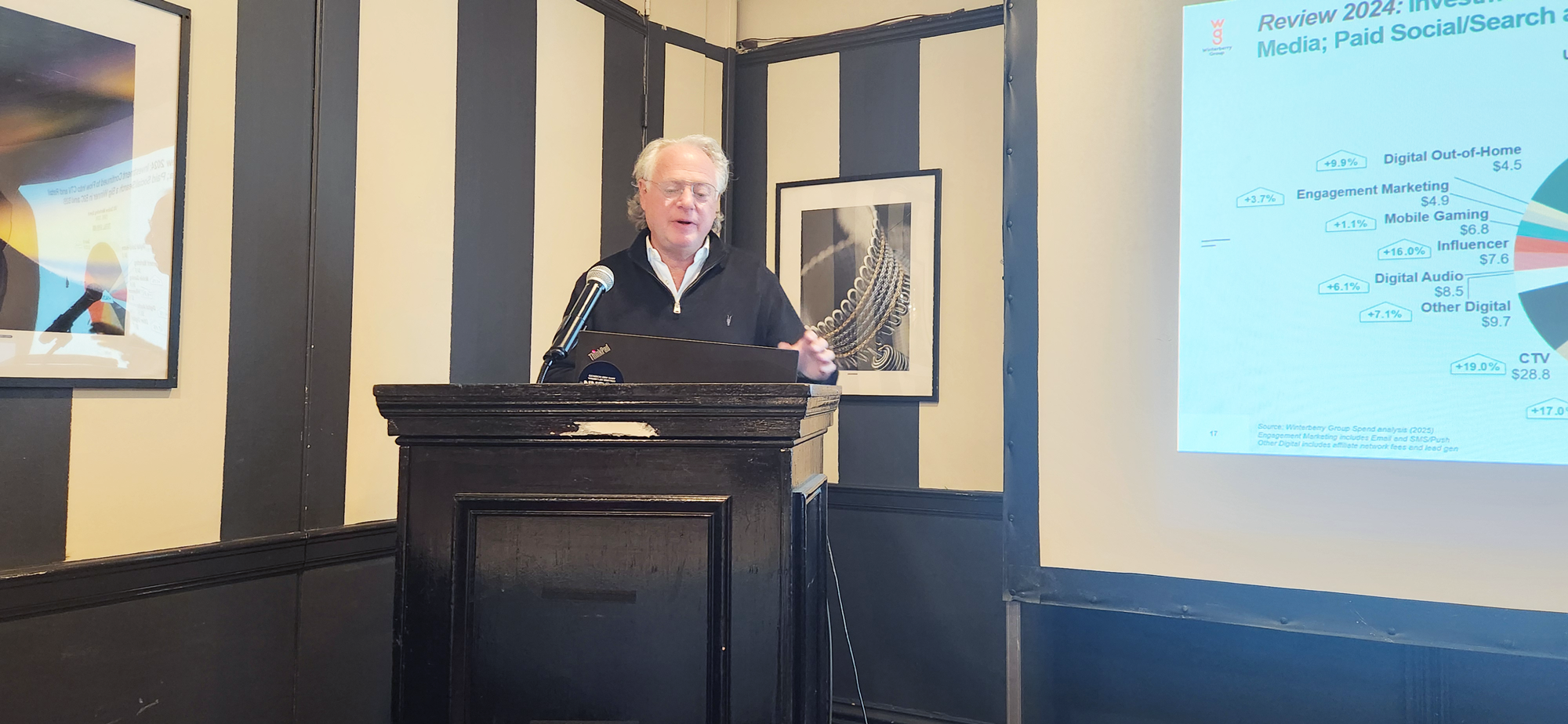
“Data is the driver of everything we do and the way that we do it. It’s what tells us
what’s working, what’s not working, what we should be doing next. It’s how we
interpret what happened in the past to get context,” Colorado SEO Pros’ Chris
Rodgers said when we asked why he loves data. “Without data, it would
essentially be like doing marketing blind.”
Sure, marketers use data all the time. But for many marketers, their relationship with data is more like getting together with a casual acquaintance. They’ll share a few stories and have a laugh, but their connection is situational: They’re the ballgame friend or the gym friend; there’s not much depth.
Other marketers, like Rodgers, have been struck by Cupid’s arrow. They love data. They can’t live without it. Data is behind the majority of their marketing decisions.
And like getting struck by Cupid’s arrow, their love for data came over them in an epiphany. In one moment data changed everything.
If you like data, but haven’t fallen hard yet, perhaps you need some inspiration of what’s possible, even if your data isn’t perfect or your reporting needs an overhaul. You may be like the handful of marketing and analytics executives responding to our straw poll* who are in a bad relationship with data, like the 33 percent who say data plays hard to get, or the 25 percent who say their data looks good but has issues, or even like the 25 percent who say their data is just a hot mess. (Sadly, only 17 percent think their data is beautiful; that is, it’s clean, current, and accurate.)
Even so, 8 percent of respondents say they can’t live without data and 58 percent say they love data and admit that, like any great relationship, it takes work. Thirty-three percent love it despite it being high maintenance or a bit unreliable.
We asked several marketers to share their data love stories. Their tales are sure to leave you giddy with anticipation for your own love-struck moment — and will provide you with the inspiration you need to be Cupid’s next target.
*Not statistically significant, but still fun.
JUMP TO:
Why love data?
Counsel: I’ve always seen data as a trusted partner, like that person in your life who’s always going to look you in the eye and tell you the truth and point you in the right direction,” says Aaron Frank, VP of strategy and insights at entertainment marketing company Branded Entertainment Network (BEN). “Data is also that friend who causes you to get a little bit away from your worldview. A good piece of research and a good set of data can help you see things differently…and challenge your previously held beliefs. That’s just so incredibly powerful.”
Substantiation: “Data removes the idea that marketing and advertising are hard to measure. We can track the entire funnel of the consumer to see when and how they convert,” says Nick Foppe, managing director of Cartwheel Agency, a digital marketing agency. “Having that data allows us to say, ‘I think we’re making a good investment here.’ I’m totally addicted to the power of it.”
Direction: Data makes things easier in terms of determining where to focus, where to spend money, where to spend your efforts; it helps you home in on what’s going to be the most effective and what’s going to drive the most results. It adds clarity to strategies and projects,” says Kristen Findley, VP of consumer insights and technologies of digital marketing agency Ciceron.
Objectivity: “Data is the only way to make informed decisions,” asserts Dan Ushman, founder and CEO of Concurra, a website optimization firm. “It’s either be objective and look at stats and various types of data that you’ve collected and analyzed, or be subjective and go by your gut, what looks good to you, and hope for the best. I find that when you’re optimizing a funnel or a website, what looks best to you doesn’t necessarily match what will convert best. Often, it’s very different because you’re biased to what you’ve built. My philosophy is, I don’t care if it looks ugly to me. I don’t care if I like it. It doesn’t matter what I think. All that really matters… is how [your audience] responds.”
Optimization: “Providing people with data leads to more optimal outcomes. I love the analytic process and [using] data to help people make decisions and make real business impact,” says Sasha Bartashnik, marketing analytics manager of etailer zulily.
“Data is the fuel [driving marketing],” adds Corrie Brague, director of product marketing Management of Quadient, a customer experience technology provider. “And when it’s prime, it makes everything run better. That’s why I love it.”
Clarity: “Data gives me the insight and transparency…to make decisions. It allows me to exercise greater control in my life. The transparency of data in marketing [means] there’s less ambiguity and fewer assumptions being made about what’s affective and what’s not,” says Chris Rodgers, founder and CEO of Colorado SEO Pros, an SEO agency.
“Every now and then you find yourself in a situation where you look at columns of numbers and symbols and signs, all of a sudden you start noticing patterns and excitement takes over and you’re think, ‘I see the path. I understand where we’re supposed to go,’” adds Aleksandra Scepanovic, managing director of real estate firm Ideal Properties Group. “That’s the most exciting part for me.”
Cupid’s arrow struck when…
“At a previous company we spent six months and probably $60,000 redesigning a website. We thought we were being really clever. We applied a lot of theoretical stuff we had read about, like using arrows to guide the users’ gaze. It looked great to us. We thought we were rock stars. But none of hocus-pocusy stuff actually worked the way we thought it would.
“We launched the thing, and it performed about a third as well as the one it replaced. We ended up scrapping the new site and decided to collect data on the old one. We found a few areas to improve, and it was really cheap and easy. We improved the conversion rate by responding to users’ interactions with the site and not our own opinions about it.” – Dan Ushman, Concurra
“I was using Omniture, so this was before Adobe purchased it, and had it running across five different websites. I realized I would kind of jump to conclusions, like, ‘This is why we’re not converting.’ Or, ‘That’s why this number is bad.’ So, I started trying to prove myself wrong. That’s something I’ve done ever since. And I’ve had more fun with data, trying to answer questions, test my gut reaction, and see if I’m right or wrong.” – Kristen Findley, Ciceron
“I was working at a large advertising agency in Chicago. They created an SEO and PPC product. It was in the early days of SEO and I remember going out to my clients’ businesses and putting keywords into their landing pages — and then, during follow up meetings two weeks or a month later, literally seeing the cause-and-affect direct relationship between the action that I took and the actual result, which for them was traffic to those pages and ultimately contacts into their business. It was electrifying for me.” – Chris Rodgers, Colorado SEO Pros
“We realized early on in the existence of our small real estate outfit that we needed massive amounts of data to stay ahead of the listings and the market trends they reflect. We also realized that we produce substantial amounts of data, as well, from transaction details to new ownership information, to changing demographics, to changing buildings and so on. We also realized that staying at the helm of these flood-prone data streams is a challenge that we had to learn how to step up to…. We were trying to capitalize on all data that was available to us to optimize our campaigns. What hooked us was that even though data seems constant and stable, it’s anything but.” – Aleksandra Scepanovic, Ideal Properties Group
Keep the romance alive
Give TLC: “You keep the data love by giving it love; by treating it like an organizational asset and making it a trusted source of truth. My approach has always been, first of all, know your data. Make sure you know its quality, take steps to improve it, and then run your analytics. It’s about managing your data, investing in it, and then investing in the tools to ensure its quality,” says Quadient’s Corrie Brague. “Like any relationship, it’s about putting in the hard work. You don’t want the whole situation of garbage in, garbage out.”
Be swingers: “I invite our data scientists to every brainstorm we have. They often lead the process by providing insights that allow us to develop the creative for a specific campaign. That traditionally had not happened in the past, I can assure you. Creatives today are embracing data scientists in the room, so [campaigns are] grounded in some sort of insight, not just by the most creative brain in the room,” says Nick Foppe of Cartwheel Agency. “We also bring our data scientists into client pitches. Before we even discuss creative, we show clients why it’s going to work from the data we’ve analyzed. And that’s what they expect. Clients aren’t buying pure creative. They want it grounded insight and data science.
“So, we keep the love for the data strong by keeping the analytics team as close to the creative team as possible to act as one unit,” Foppe adds. “What I’ve noticed is that the creatives are actually becoming more analytical and the data scientists are becoming more creative. There’s plenty of love in the air with this model.”
Get some action: “I focus on what pieces of data are going to give us the most important information,” says Ciceron’s Kristen Findley. “Start with the business goals and the marketing goals and then focus on what data is going to help meet those goals or help drive that behavior. There’s so much data available, you need to focus on the data that you can take action on.”
“My love’s not with data” adds Concurra’s Dan Ushman. “It’s with the results I get with data. Using data to optimize keeps the relationship going. So, does coming up with new types of data to collect and finding new ways to use it.”
Aleksandra Scepanovic of Ideal Properties Group adds: “Every number tells a story. A story of, say, disappointment or over-bidding, a neighborhood that’s about to undergo a transition. Looking at data from that perspective — how it tells stories that help your business — is what makes the relationship continue.”
Be swayed: “It’s about finding that balance between storytelling and creativity and ideas. Then having the insights in the data to help prove the point you were trying to make,” says BEN’s Aaron Frank. “A colleague at a brand strategy firm I previously worked at had a button on her laptop bag that said, ‘I’m right and I’ve got the charts and bar graphs to back it up.’ I always thought that was funny.
“What I took away from it is this: Data isn’t going to give you all the answers, it’s not going to say, ‘This is exactly what you should do,’ but it can be like this perfect marriage with creativity in that it can make big ideas happen. The more you can support an idea with data, the better chance you’re going to have to make it happen and make it sing.”
Spice it up: “Constant learning and being open to new opportunities keeps the relationship fresh,” says Kristen Findley, Ciceron. “It’s like date night.”
BEN’s Aaron Frank adds: “Like any relationship, it’s not just about looking at the same things that you’re doing all the time, but it’s also about figuring out new ways and new approaches that keep things interesting.”
Advice for the lovelorn:
“Hire a couple of data scientists. Then, invest in the technology to drive the analytics. When you do that, you’ll never turn back. Using data will make everything you did before seem irrelevant. Chances are you’ll forget what it was like to execute campaigns without it. I wouldn’t go anywhere to any meeting or anything without a data scientist right on my hip advising and monitoring and optimizing in real time the trends and behaviors that are happening.” – Nick Foppe, Cartwheel Agency
“Don’t be afraid of data. If you take the relationship metaphor to the extreme and say a good partner makes you a better person, then you can also say good data makes you better at your job and makes you better at marketing and closer
to achieving your business goals. Keep focused on the data that’s going to do that, that’s making your job better, that’s making your marketing and your team
better.” – Kristen Findley, Cicero
“Get over yourself and your biases and, as long as the data that you’re looking
at is statistically significant, trust it. Just go with it. Don’t let your own preferences and what looks good to you or what you think will work best or what your competitors are doing affect what you’re doing and how you interpret information.” – Dan Ushman, Concurra
“Look at data as signals and information that indicates trends and use it to form your overall opinion, pose a hypothesis, and then test that hypothesis. Every tool measures data in a different way and they rarely line up across channels. So, if you’re someone who needs to see all the dots connected and line up in an equation that gives you an exact answer, then you’re probably going to have some difficulties when you really start getting into data. Data is not going to give you the answer; it only gives you insight to formulate your hypothesis, test it, and then come to a determination. – Chris Rodgers, Colorado SEO Pros
“Get to know the data, like you’d get to know someone in a new relationship. Understand it. Be able to answer the question, how good is it? Then, take the steps to improve it. Start small, make improvements, and measure what the improvements do in terms of better results.” – Corrie Brague, Quadient
“Keep at it. I find it easy to love data, but we always have to remember the human aspects and needs and desires that all data is a reflection of. Looking at the numbers from the users’ perspective is a good rule of thumb. Imagine being on the receiving end of a number story. Ask yourself, are you a persona? Or are you just you? How do you explain you to a binary setup? Data can’t answer all of these questions. They’re almost existential questions in the digital world.” – Aleksandra Scepanovic, Ideal Properties Group
“Don’t look for all of the answers in the numbers. Some marketers get so focused on the data that they can miss a big idea or fail to see the big picture. You’re not going to find all of the answers in the data. It has to be that partner; it has to help us see things in a different way, empower creativity, and help us find things that we’re not going to see otherwise. – Aaron Frank, BEN

About the Author
Ginger Conlon, chief editor and marketing alchemist at MKTGinsight, catalyzes change in marketing organizations. She is a frequent speaker on marketing and customer experience, and serves in advisory or leadership roles for several industry organizations. Ginger was honored with a Silver Apple lifetime achievement award for her contributions to the marketing industry.
Find her at @customeralchemy and on LinkedIn.








